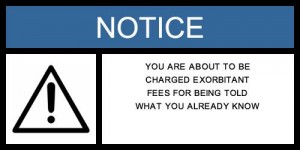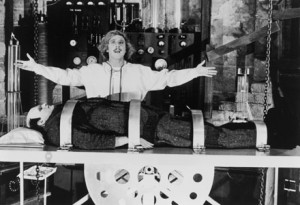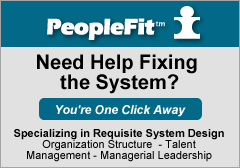Olympic Cuisine – A Friday Fascinating
By Michelle Malay Carter on August 15, 2008
A friend passed along some photos of the food choices available to Olympics visitors in the Chinese markets.? I guess when you eat “Chinese” food in Raleigh, North Carolina, USA it’s not wholly representative of their culinary offerings.
In addition to the photos I’ve included, she shared photos of lizard legs, iguana tails, seahorses, dog brain soup, dog liver with vegetables, goat lungs with red peppers, mixed cow and horse stew.
I find it fascinating that one man’s culinary delight is another’s worst fright.? I think I could handle most of what I saw except the crunchy items.? I wonder what Chinese nationals would find most repulsive?while on a culinary tour of?the United States?
I’ve had some traffic from China on this blog.? Maybe you could offer your opinion on this one?
Filed Under Personal Observation | Comments Off on Olympic Cuisine – A Friday Fascinating
Organization Structure is a Business Initiative Not an HR Initiative
By Michelle Malay Carter on August 14, 2008
 Playing off a line from my last post, organization structure is a business initiative, not an HR initiative.?
Playing off a line from my last post, organization structure is a business initiative, not an HR initiative.?
A Missing Collective Understanding
I think executives underestimate the connection between organization design as well as all of an organization’s “people” systems, i.e. compensation, performance management, talent management, and organizational sustainability.
When executives push down the accountability and decision making around those crucial people systems into non-strategic layers of the organization, the ramifications are huge.? You will get incremental innovation or improvements to current operations, but not more.? So who is accountable for the future focused work in these areas?
An Organizational Structure Design Imperative
Some role at the executive level (Level 4+)?that is occupied by a person capable of thinking strategically must be stewarding the system design in the critical areas!? It may be an HR role, it may be not, whether it’s HR is not really the point.
A Title is Not Enough – You’ve Got to Examine the Work!
Unfortunately, even when HR staff are “titled” with executive titles, a requisite work levels?examination?of their actual work often finds their work tasking and delivery to be at an operational level (Level 3 or below), rather than a strategic level, i.e. executive level work.
You Get What You Design For
When people systems are designed at a lower than 4 level, you will get processes and procedures, but you will not get cross program integration nor will you get future focused change work focused upon the infrastructure changes and current operations changes necessary to deliver strategic goals beyond two years.
I’m OK.? You’re OK.? Let’s fix the system.
Have you ever been a victim of a poorly designed, non-integrated people system?
Filed Under Accountability, Executive Leadership, Organization Design, Requisite Organization, Strategy, Talent Management, Work Levels | 4 Comments
Web 2.0 is a Business Initiative, Not an IT Initiative
By Michelle Malay Carter on August 12, 2008
 I often find myself underwhelmed by survey results, responding to survey result reports?with the thought,?well duh!, rather than ah-ha!? You?
I often find myself underwhelmed by survey results, responding to survey result reports?with the thought,?well duh!, rather than ah-ha!? You?
McKinsey’s latest, Building the Web 2.0 Enterprise: McKinsey Global Survey Results, had a few well duh’s for me as well.? I thought I’d share.
“A higher level of usage is found at companies that encourage it by using tactics such as integrating the tools into existing workflows, launching Web 2.0 in conjunction with other strategic initiatives, and getting senior managers to act as role models for adoption.”
Well duh!? If Web 2.0’s only use is outside the workflows of the organization, what is it’s purpose?
“These forward-thinking companies seem to be taking a more business-centric approach to the adoption of Web 2.0 as well. Satisfied respondents say that, in large measure, business units rather than IT departments are driving the selection of Web 2.0 technologies.6 Dissatisfied respondents report the reverse: IT units take the lead, choosing the tools and then delivering them to business units (Exhibit 8).7”
Well duh!? We’ve let the tail wag the dog too long.? Support functions are just that, support functions, when they function as such, the business does well.
Thanks to Luc Galoppin for the point to the survey and for his quote that I used as this post’s title.
I’m OK.? You’re OK.? Let’s fix the system.
Filed Under Corporate Values, Organization Design, Requisite Organization, Strategy | 2 Comments
Distracted from the Mission – A Friday Funny
By Michelle Malay Carter on August 1, 2008
How much time do you spend a work negotiating and renegotiating with peers and colleagues in order to get your work done?? What if we systematized specifying role relationship accountabilities and authorities into job descriptions, leaving the people free to do their work without the constant relationship strategizing?
Defining Role Relationships
For example:? A human resource manager?has a monitoring role when it comes to recruiting and screening practices.? An analyst has a service giving relationship with the district manager.? Quality has an auditing role when it comes to production.?
Seven Types of Relationships
Elliott Jaques defined 7 types of role relationships within Requisite Organization which?can make employees’ ability to focus on the work at hand a breeze.? Each type of relationship is specified in terms of accountabilities and authorities.? (To see these defined, see Cross Functional Working Relationships in the Mission Minded Management Glossary.)
The?Consequences of Not Defining Relationships
When managers do not pre-think and elucidate role relationships?by clearly defining their direct reports’ accountabilities and authorities in relations to others, we end up acting like contentious siblings having to resort to manipulation, coercion, charisma or flat our bribery.? All of this, of course, distracts everyone from the true mission of the organization.???This is?completely avoidable.
Been There Done That
The video clip below?reminded me of this common waste of time within organizations.? Take 60 seconds out for a smile this Friday.
?
?
I’m OK.? You’re OK.? Let’s fix the system.? What have you had to resort to in order to get your work done?
Filed Under Accountability, Employee Engagement, Executive Leadership, Requisite Organization, Strategy | 2 Comments
Separating Observation from Evaluation
By Michelle Malay Carter on July 30, 2008
 I’m reading NonViolent Communication, A Language of Life by Marshall B. Rosenberg.? Although I am not all the way through it, I am riveted by its content.? I may share more from the book?in the future, but I wanted to start by offering some passages from the book regarding separating observation for evaluation.
I’m reading NonViolent Communication, A Language of Life by Marshall B. Rosenberg.? Although I am not all the way through it, I am riveted by its content.? I may share more from the book?in the future, but I wanted to start by offering some passages from the book regarding separating observation for evaluation.
“Most of us grew up speaking a language that encourages us to label, compare, demand, and to pronounce judgments rather than to be aware of what we are feeling and needing.”
“Our repertoire of words for calling people names is much larger than our vocabulary of words that allow us to clearly describe our emotional states.”
“Our judgments of others are alienated expressions of our own unmet needs.”??When others judge us, they are?inviting us to contribute to their well being by addressing their unmet needs.
“When we express our needs indirectly through the use of evaluations, interpretations, and images, others are likely to hear criticism.? And when people hear anything that sounds like criticism, the tend to invest their energy in self-defense or counter attack.? If we are wishing for a compassionate response from others, it is self-defeating to express our needs by interpreting or diagnosing their behavior.?”
“Instead, the more directly we can connect our feelings to our own needs, the easier it is for others to respond compassionately to our needs.? Unfortunately, most of us have never been taught to think ino terms of needs.? We are accustomed to thinking about what’s wrong with other people when our needs aren’t being fulfilled.”
Observing without evaluating is the highest form of intelligence.?
—Indian Philosopher, J. Krishnamurti
Wow!? This is great stuff.? I know I need to work on observing without evaluating and on discovering what I am really feeling.? You?
Filed Under Accountability, Corporate Values, Personal Observation, Strategy | 2 Comments
Executives are Spiritual Stewards – Help Me Build a Collective Understanding
By Michelle Malay Carter on July 28, 2008
 Do executives understand their role as spiritual stewards?? I would love to build a collective understanding around this idea, and I invite you to pass this idea along.
Do executives understand their role as spiritual stewards?? I would love to build a collective understanding around this idea, and I invite you to pass this idea along.
Work is a psychological imperative for humans, and all work is creative as it requires discretion and judgment.
Therefore, work has the potential to be a noble, highly-gratifying expression of a human soul.?? Our unique combination of experience, talents, gifts, values, judgment, and problem solving brings about a work product that is distinct to the person offering it.?
Therefore, we make ourselves vulnerable in our work by exposing our essence to others.
Executives are accountable for their organization’s leadership systems.? All to often these systems are ill conceived or even left to default.? Day in and day out, employees’ souls are damaged at the hands of dysfunctional “people” systems.? We have created huge populations of working-wounded, and the societal costs are astronomical.
I don’t believe this is the result of maliciousness, but rather ignorance.? If this is the case, we have hope.
I’m OK.? You’re OK.? Let’s fix the system.
Filed Under Accountability, Corporate Values, Executive Leadership, Requisite Organization, Strategy, Talent Management | 12 Comments
Work Signs – A Friday Funny
By Michelle Malay Carter on July 25, 2008
 Thanks to NoolMusic.com for their list of funny signs.
Thanks to NoolMusic.com for their list of funny signs.
On a plumbers truck: ‘We repair what your husband fixed.’
On the trucks of a local plumbing company: ‘Don’t sleep with a drip. Call your plumber.’
Pizza shop slogan: ‘7 days without pizza makes one weak.’
At a tire shop in Milwaukee: ‘Invite us to your next blowout.’
Door of a plastic surgeon’s office: ‘Hello. Can we pick your nose?’
At a towing company: ‘We don’t charge an arm and a leg. We want tows.’
On an electrician’s truck: ‘Let us remove your shorts.’
In a non-smoking area: ‘If we see smoke, we will assume you are on fire and take appropriate action.’
Sign over a gynecologist’s office: ‘Dr. Jones, at your cervix.’
On a maternity room door: ‘Push. Push. Push.’
What should your office door say?
Filed Under Employee Engagement, Requisite Organization, Strategy | 2 Comments
Are You Making Your Employees Choose? I’m OK. You’re OK. Let’s Fix the System
By Michelle Malay Carter on July 21, 2008
 The best thing we could do for employees to build engagement is simply get out of their way.? We have lived with conflicts of interest in the system for so long, they have disappeared into the landscape.? We simpy accept them, and no longer question their effects on our employees’ psyche or our business’ effectiveness.
The best thing we could do for employees to build engagement is simply get out of their way.? We have lived with conflicts of interest in the system for so long, they have disappeared into the landscape.? We simpy accept them, and no longer question their effects on our employees’ psyche or our business’ effectiveness.
Moving From “Or” Thinking to “And” Thinking
Breakthrough product innovation often evolves from someone asking the question, why make our customers choose?? Why make them choose between quality and price?? Between technological capability and portability?
Every day we make employees choose.? Why?? Why do we make them choose between:
- Making their individual numbers (productivity) and doing the right thing for the company (effectiveness)?
- Having time for their “technical work” and having time for their managerial leadership work?
- Having a bell curve on their direct reports’ performance evaluation score distribution and being honest by reflecting reality?
- Not spending their full budget allotment unnecessarily?and risking not getting what they legitimately need next year?
- Hiring the best candidate without a degree and hiring a mediocre candidate with a degree?
- Offering their full capability and threatening their manager?
- Expecting leadership, context, and resource provision from their managers and being viewed as unresourceful?
- Getting satisfying answers to their questions and being insubordinate by going to the boss’ boss?
- Working within the confines of an?ineffective but authorized system and getting their work done via unauthorized means?
- Taking care of the customer and following a short-sighted policy?
- Expecting that their accountabilities would be paired with corresponding authority and having to bully, manipulate, or schmooze others to get their work done?
- Speaking up and being viewed as a pessimist?
I’m OK.? You’re OK.? Let’s fix the system.? What conflicts of interest have you had to choose from?
Filed Under Corporate Values, Employee Engagement, Managerial Leadership, Organization Design, Requisite Organization, Strategy, Talent Management | 10 Comments
Clueless Candidates – A Friday Funny
By Michelle Malay Carter on July 18, 2008
 Thanks goes to InBox Humor?for its list of things not to say or do during an interview – as gathered from the real life experiences of hiring managers.?I don’t like labels, but clueless just seems to fit here.? I’ve done interview preparation training, and?I naively thought that some things?just go without saying.??After reading this,?I’ll have to add a few line items to the list.
Thanks goes to InBox Humor?for its list of things not to say or do during an interview – as gathered from the real life experiences of hiring managers.?I don’t like labels, but clueless just seems to fit here.? I’ve done interview preparation training, and?I naively thought that some things?just go without saying.??After reading this,?I’ll have to add a few line items to the list.
- Said that he was so well qualified [that] if he didn’t get the job, it would prove that the company’s management was incompetent.
- Stretched out on the floor to fill out the job application.
- Brought her large dog to the interview.
- Chewed bubble gum and blew bubbles.
- Wore a Walkman and said she could listen to the music and me at the same time.
- Balding candidate abruptly excused himself. Returned to office a few minutes later wearing a hairpiece.
- Challenged interviewer to arm wrestle.
- Asked to see interviewer’s resume to see if the personnel executive was qualified to judge her.
- Announced she hadn’t had lunch and proceeded to eat a hamburger and French fries in the interviewer’s office.
- Stood up and walked out during the middle of the interview without saying a word.
- Wore a?jogging suit to interview for position as financial vice president.
- Said if he were hired, he would demonstrate his loyalty by having the corporate logo tattooed on his forearm.
- Interrupted to phone his therapist for advice on answering specific interview questions.
- Wouldn’t get out of the chair until?hired.??They had to call the police.
- Had a little pinball game and challenged the interviewer to play with him.
- Pulled out a Polaroid camera and snapped a flash picture of the interviewer.? Said he collected photos of everyone who interviewed him.
- Candidate asked interiviewer if?he would put on a suit jacket to ensure that the offer was formal.
- Said he wasn’t interested because the position paid too much.
- While I was on a long-distance phone call, the applicant took out a copy of Penthouse and proceeded look through it.
- During the interview, an alarm clock went off from the candidate’s briefcase. He took it out, shut it off, apologized and said he had to leave for another interview.
- An applicant came in wearing only one shoe. She explained that the other shoe was stolen off her foot in the bus.
- His attache [case] opened when he picked it up and the contents spilled, revealing ladies’ undergarments and assorted makeup and perfume.
- He took off his right shoe and sock, opened a medicated foot powder and dusted it on the foot and in the shoe. While he was putting back the shoe and sock, he mentioned that he had to use the powder four times a day, and this was the time.
- Candidate said he really didn’t want to get a job, but the unemployment office needed proof that he was looking for one.
- Asked who the lovely babe was, pointing to the picture on my desk. When I said it was my wife, he asked if she was home now and wanted my phone number.
- She threw up on my desk and immediately started asking questions about the job, like nothing had happened.
- Asked if I wanted some cocaine before starting the interview.? Snort.? Snort!!
What strange interviewing experiences have you had?
Filed Under Employee Engagement, Requisite Organization, Talent Management | Comments Off on Clueless Candidates – A Friday Funny
Titles Are Useless for Benchmarking or Measurement Purposes
By Michelle Malay Carter on July 16, 2008
 From the Mailbag
From the Mailbag
I received an inquiry at the PeopleFit site asking about whether we had a database of role mandates by title – CEO, CFO, CIO, HR manager – available for subscription.? And the inquiry was coming from?someone inside?a global business consulting group.
Specifically, the request was for:? “Role mandates, describing individual and shared accountabilities, decision rights, key metrics, financial targets.”? Again, by title.
Heavy Sigh
I?am disheartened and disconcerted?that well-reputed business consultants believe that benchmarking and universally specifying roles by title would be a reliable methodology.
It’s?akin to?my thinking that once I’ve driven on Main Street in Warren, Ohio, I’ll know what to expect when I hit Main Street in Toronto, Ontario.
Not All Roles Are Created Equal
I’ve said before that not all roles are created equal.? For example, CEO roles can be found from work level 3, a small,?local organization (a restaurant with 2 or 3 locations), all the way to level 7 or 8 (Walmart or General Motors).
The Price We Are Paying for Organizational Malpractice
This ignorance costs us greatly.? One of the reasons CEO compensation is so squirrelly is that there is no science-based methodology for creating organizational peer groups for CEO pay benchmarking.? Talk about organizational malpractice!
Disengagement
I think our current employee engagement numbers (about 21% engaged) reflect the fact that employees are tired of being treated like lab rats in a laboratory run with no mind toward science nor scientific methodology.
Have you ever suffered at the hands of a well-intentioned but disastrous organizational experiment??
Organizational Experiments
How about pay for performance?? How about being forced to lob the bottom 10% of your employees each year?? How about being subject to two masters (matrix management)?? How about being forced to attend useless training or follow a restrictive policy because no one wanted to confront the one person who was creating problems?
I’m OK.? You’re OK.? Let’s fix the system.
Filed Under Corporate Values, Employee Engagement, Executive Leadership, Felt Fair Compensation, Managerial Leadership, Requisite Organization, Succession Planning, Talent Management, Work Levels | 4 Comments



